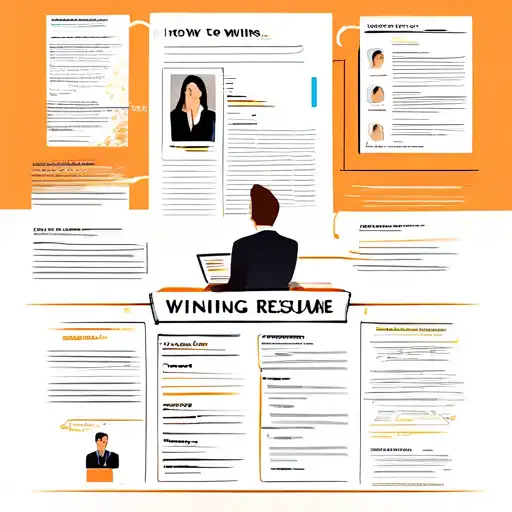Introduction to Crafting a Winning Resume
In today's competitive job market, having a standout resume is more important than ever. A well-crafted resume not only showcases your skills and experiences but also highlights your potential to prospective employers. This guide will walk you through the essential steps to create a resume that captures attention and opens doors to new opportunities.
Understanding the Basics of a Resume
Before diving into the writing process, it's crucial to understand what a resume is and its purpose. A resume is a concise document that summarizes your professional background, including your work experience, education, skills, and achievements. Its primary goal is to convince employers that you're the right fit for the job.
Key Components of a Winning Resume
- Contact Information: Ensure your name, phone number, email, and LinkedIn profile are up-to-date.
- Professional Summary: A brief statement that highlights your career goals and what you bring to the table.
- Work Experience: List your previous roles in reverse chronological order, focusing on achievements rather than duties.
- Education: Include your degrees, certifications, and relevant coursework.
- Skills: Highlight both hard and soft skills that are relevant to the job you're applying for.
Tips for Making Your Resume Stand Out
To ensure your resume gets noticed, consider the following tips:
- Customize for Each Job: Tailor your resume to match the job description, using keywords from the listing.
- Use Action Verbs: Start bullet points with dynamic verbs like 'developed,' 'led,' or 'increased' to convey impact.
- Keep It Concise: Aim for one page if you're early in your career, or two pages for more experienced professionals.
- Proofread: Errors can undermine your professionalism, so double-check for typos and grammatical mistakes.
Common Resume Mistakes to Avoid
Even small errors can detract from your resume's effectiveness. Avoid these common pitfalls:
- Being Too Generic: A one-size-fits-all approach won't make you stand out.
- Including Irrelevant Information: Focus on what's pertinent to the job you're applying for.
- Overdesigning: While creativity is important, overly complex designs can distract from your content.
Leveraging Your Resume for Career Growth
Your resume is more than just a job application tool; it's a reflection of your professional journey. Regularly updating your resume, even when you're not job hunting, can help you track your achievements and prepare for future opportunities. For more insights on advancing your career, explore our career advice section.
Final Thoughts
Writing a winning resume is an art that requires attention to detail, customization, and a clear understanding of your professional narrative. By following the steps outlined in this guide, you'll be well on your way to creating a resume that not only stands out but also truly represents your potential. Remember, your resume is your first impression—make it count.
